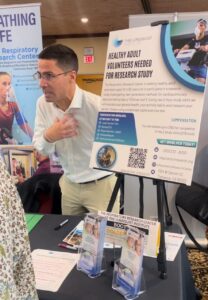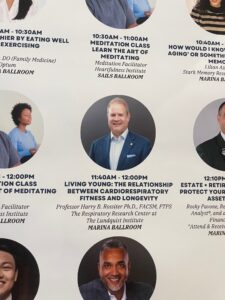September 2024
Drs. Rossiter & Gao Introduce the “EBCare” SmartMask
RRC investigator Dr. Rossiter together with Dr. Wei Gao and his team at Caltech have developed a prototype smart mask, called “EBCare”,designed to monitor various medical conditions, including respiratory ailments like asthma, COPD, and post-COVID-19 infections. Unlike other smart masks that track physical changes such as temperature and breathing rate, EBCare can analyze chemicals within a person’s breath in real-time. This innovation, published this month in the journal Science, could revolutionize how respiratory health is monitored, enabling patients to receive immediate feedback on airway inflammation from the comfort of their homes. “Monitoring a patient’s breath is routinely done to assess respiratory conditions, but it typically requires a clinic visit and waiting for lab results,” Gao explains. With EBCare, patients can now be offered real-time direct remote health monitoring of the chemical composition of the breath.
Co-author Dr. Harry Rossiter, professor of medicine at UCLA and an investigator at the Lundquist Institute, highlights the significant potential of this smart mask platform for real-time lung health monitoring. The mask’s design allows for the collection and analysis of exhaled breath condensate (EBC), providing insights into various biomarkers related to respiratory and metabolic health. Early studies have demonstrated the mask’s ability to accurately detect inflammation markers in asthma and COPD patients, as well as blood alcohol and urea levels, suggesting broad applications in health monitoring and diagnostics. The research, funded by several national institutes, sets the foundation for a versatile health-monitoring tool that could incorporate a wide range of biosensors in the future.
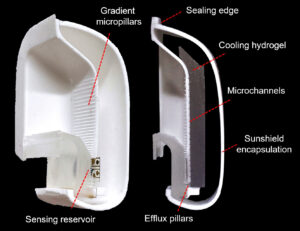
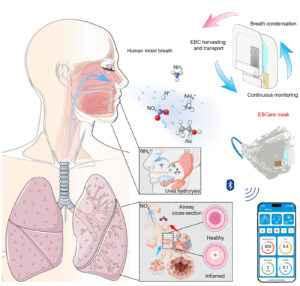
The 39 Year Study!
What causes people to breathe more when they exercise? This question has challenged scientists for many, many years. One way to find out is to see how breathing changes when the exercise level changes. Early in his career, our own Dr. Casaburi did studies in which people did exercise against fluctuating work rates. Called “sinusoidal” exercise, the series of studies needed required several hours of exercise for each subject. In 1985, Dr. Casaburi had a thought: what if the fluctuations started slowly and then speeded up as the study proceeded? Christened a “chirp”, this study required only half an hour of exercise. Unfortunately, in 1985 the computer programs to analyze these responses did not exist. Fast forward over the decades: the computing machinery became available, and a series of people (healthy young, healthy older and people with COPD) were recruited to perform “chirp” studies. Dr. Michele Girardi, a post-doctoral fellow with our group, completed the analysis of the data, and just last week the study was published in the Journal of Applied Physiology. Well worth the wait!
RRC Member of the Month
We are thrilled to introduce the youngest, cutest and most special RRC Member of the Month we’ve ever had—Francesco Gattoni Girardi! Born on August 22nd at 8:25 AM, Francesco’s arrival came with some initial challenges, spending his first few days in the NICU. Throughout this time, his devoted parents, Drs. Chiara Gattoni and Michele Girardi, both postdoctoral fellows, stayed by his side. Chiara’s parents flew in all the way from Venice, Italy, to meet their new (and first ever!) grandson. During this time, all the staff members at the RRC rallied behind Francesco, cheering for his quick recovery.
“We like to think that Francesco heard too much about CPET, exercise physiology and hypoxia that he wanted to try himself.”
Francesco is now a healthy, hungry little boy who just needed a little help to make his way into the world. He received the best possible care from an incredible team of nurses, NICU doctors, and many others who support patient care. His parents are incredibly grateful for the way his initial challenges have been overcome and for the support they received from so many. This experience made them even more proud of our physicians at Harbor-UCLA Medical Center, who work tirelessly in the ICU to deliver the same high-quality care to their patients.
“Welcome to the world, Francesco. Your mummy and daddy will always be with you, no matter what the future brings.” Chiara & Michele
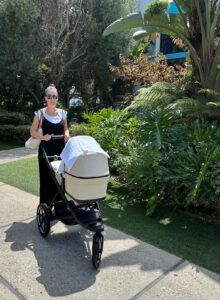
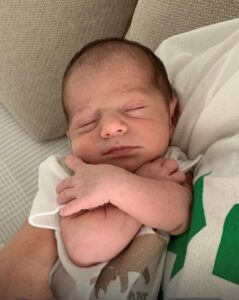
Golden Future Expo
In August, our Respiratory Research Center team attended the Golden Future Expo in Long Beach, a well-established event with a 14-year track record of focusing on the health and lifestyle needs of Baby Boomers and Seniors. The expo is a key gathering for the 50+ community, which is increasingly interested in staying healthy and active. At this event, we highlighted our center’s work, particularly our mCPET Deconditioning Research Study, which examines advanced methods for cardiopulmonary exercise testing (VO2max Test). Dr. Harry Rossiter delivered a highly engaging talk titled “Living Young: The Relationship between Cardiorespiratory Fitness and Longevity.” His presentation was very well received, generating significant interest from attendees. This enthusiasm led to a notable increase in participants signing up for our ongoing research study, underscoring Dr. Rossiter’s effective communication of the important link between fitness and long-term health.
